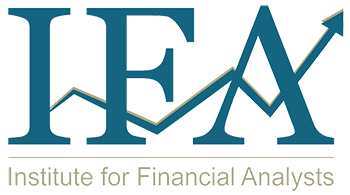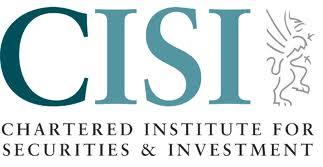The Islamic Finance Qualification (IFQTM) is managed through an IFQ Institute established by the partnership between the Chartered Institute for Securities & Investment (CISI) and the École Supérieure des Affaires (ESA).
The Islamic Finance Qualification (IFQTM) covers Islamic finance from both a technical and Shariah perspective, providing the first international benchmark in the area of Islamic finance.
Aim of the IFQTM Examination
• To provide an international benchmark qualification that will equip candidates with a practical understanding of Islamic finance, including Sukuk, Takaful, Mudaraba, Musharaka and Murabaha – and much more;
• To provide candidates with an understanding of the influence of Shariah in a business context;
• To prepare candidates to hold key positions in the Islamic finance and Takaful (Islamic Insurance).
• The general principles of Islamic finance
• Islamic contracts
• Islamic banking activities
• Financial statements in Islamic banks
• Governance in Islamic institutions
• Islamic investment funds
• Islamic Bond Market – Sukuk
• Islamic Insurance – Takaful
Program Timeline
The IFQTM requires approximately 130 hours of personal study time.
There are no prerequisites for this qualification.
The qualification is aimed at staff working in Shariah compliant finance, trade, investment and insurance, but is also available for candidates who are not yet in employment or those seeking a career in Islamic finance.
An Islamic economic system is a collection of institutions, i.e., formal and informal rules of conduct and their enforcement characteristics, designed by the Law-Giver (God) through rules prescribed in the Quran, operationalized by the Sunnah of the Prophet and extended to new situations by Ijtihad- to deal with the allocation of scarce resources, production and exchange of Goods and services and distribution of the resulting income and wealth. The Islamic economic system is a rule-based system funded on the principles of preservation of property rights and sanctity of contracts.
The Islamic economic system has a set of core contracts, which serve as building blocks for designing more complex and sophisticated instruments.
“In its nascent history spanning three decades, Islamic finance has undergone rapid growth and transformation. From an industry striving to fulfill the religious obligations of the Muslim community, it is now a multi-billion dollar industry driven by well-defined business considerations and profit optimization, whilst steadfastly upholding the Islamic principles. Indeed, this progress has been achieved against a challenging global financial and economic environment”, Dr Zeti Akhtar Aziz, Governor of the Central Bank of Malaysia.
The Islamic capital market, in particular, the Islamic debt market, has also experienced rapid growth since its emergence in the 1990s. New innovative Islamic financial instruments such as Islamic asset-backed securities have also emerged and the financial structures underlying Islamic securities have become more diversified. The number of Shariah-based unit trust funds has also grown consistently over the years.
Assessment Structure
IFQTM is a 2 hour examination consisting of 100 multiple choice questions.
Examination Venue
The assessment is available globally by Computer Based Testing in a secure system with instant results.
Examination Dates
Tests could be taken in the morning or afternoon on any chosen date (subject to availability).
Qualification Registration Form
All candidates are required to complete a Qualification Registration Form (QRF) when registering for the IFQTM 48 hrs before examination (subject to availability). Click Here to download the registration form
The Chartered Institute for Securities & Investment is the largest and most widely respected professional body for those who work in the securities and investment industry in the UK and in a growing number of major financial centres round the world.
Evolved from the London Stock Exchange, we now have more than 40,000 members in 89 countries. In the past year, we set almost 40,000 examinations in over 70 countries, covering a range of vocational qualifications.
For more information about the designation, please visit CISI website:
www.cisi.org

